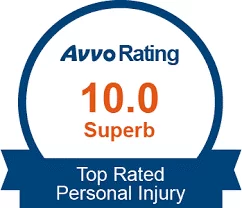Lane splitting is one of those few contentious topics where states across our country are not unanimous when it comes to traffic and road safety laws. Motorcycle lane splitting occurs when a motorcycle drives between two lanes of stopped or slowly moving cars, usually in traffic jams.
This is an extremely dangerous action for obvious reasons. If an accident occurs while a motorcycle is lane splitting, whether the motorcycle or car is at fault depends on whether lane splitting is permissible in that state, the views of the police officer and judge on lane splitting and the actions of both the motorist and motorcyclist prior to the accident.
Currently, in the United States, lane splitting for motorcycles is legal only in the state of California. A lot of other states, including Georgia have deemed lane splitting illegal. But to be able to understand the legal reasoning for the same, it is important to understand the different forms of lane splitting.
What’s the difference between lane splitting(motorcycle lane splitting), lane sharing & lane filtering?
Lane-splitting is when a motorcycle travels along the white line between two adjacent lanes of traffic. In some cases, this can allow a motorcycle to safely pass slower-moving traffic, thanks to the bike’s slim frame. However, this is an extremely risky endeavor with no clear accident laws. For this exact reason, lane splitting is illegal in Georgia
Lane sharing in bikes is when 2 motorcycles occupy the same space in the same lane of traffic while moving in the same direction. Since motorcycles are small enough to fit two into a single lane, lane-sharing is common with groups of motorcyclists. There is no specific language banning lane sharing, but it deemed just as risky, and therefore avoided in the latest Georgia state Motorcycle Operation Manual. There are however claims that lane sharing can actually make the road safer for motorcyclists. As multiple bikes share a lane, the vehicles behind them see two taillights, effectively making it easier to be spotted and not hit.
Finally, lane filtering is just the same as lane splitting, but with stationary traffic on both sides.
Accidents While Lane Splitting: Who is Liable?
Lane splitting is a classic accident scenario for a couple of reasons. The proximity of the cars to the motorcycle, the reduced space to maneuver, and the fact that the cars don’t anticipate that a vehicle will be passing them in slowed or stopped traffic all lead to accidents. NHTSA data suggests that 11 out of every 100,000 accidents occur because of lane splitting.
If an accident happens while a motorcycle is lane splitting, the fault is most likely to be attributed to the motorcycle rider. Any injuries that occurred to the bike rider, or loss/damage to the other vehicle will need to be paid for by the motorcycle rider (unless the motorcycle can sufficiently prove the other party’s fault). The only chance this might occur is if the car that hit them was changing lanes or weaving, or if the driver was distracted.
What to watch out for while riding a motorcycle (motorcycle lane splitting) in Georgia?
Georgia road safety laws clearly state that all motorcyclists must operate their vehicles safely and refrain from actions that may prevent the safe operation of a motorcycle, such as improper seating position, carrying cargo or packages, and unsafe passenger behaviors. They must abide by Georgia’s helmet law, which states that all motorcycle operators and passengers must wear helmets that meet the safety standards enforced by the Georgia Board of Public Safety.
Additionally, riders should acquaint themselves with the most common bike accidents and the best way to avoid them. Most importantly, because motorcyclists are frequently injured and/or accused of motorcycle-related accidents, an injury lawyer is incredibly important. An experienced lawyer is important in several ways before, during and after a legal case. This includes but is not limited to:
- Translating medical injuries
- Negotiating with insurance companies
- Documenting lost wages
- Obtaining proper compensation for material losses
- Assisting with the motorcycle’s repair
Do you have a trusted lawyer to reach out to for questions, concerns or in times of need? Greathouse Trial Law has experience of managing accident-related cases in suburban Atlanta with over 100+ civil and criminal cases with a high rate of success. Reach out today to schedule a free consultation.


